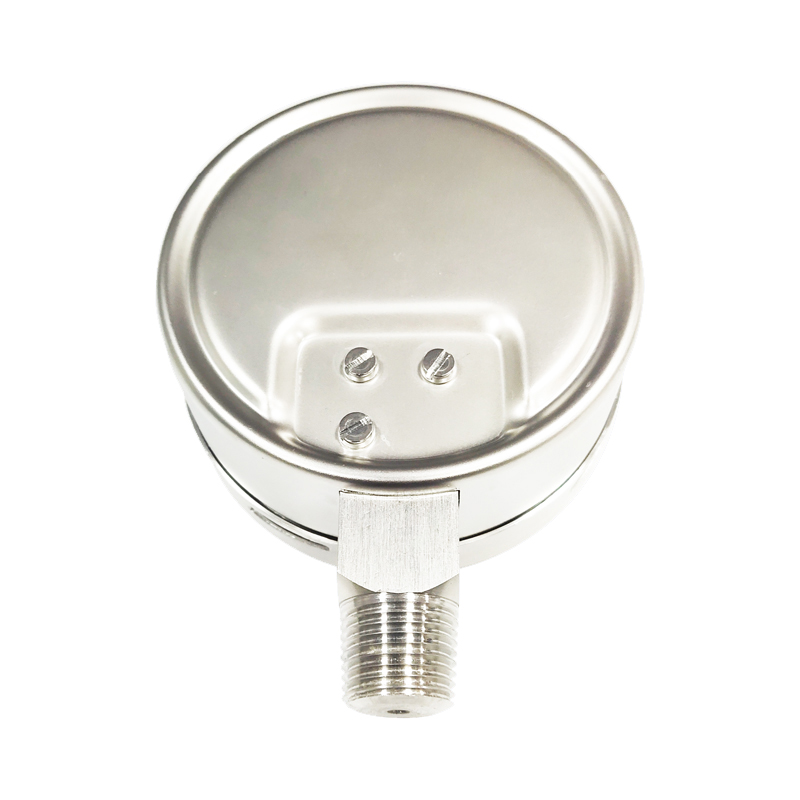
Dec . 31, 2024 20:00 Back to list
High Accuracy Pressure Measurement Solutions for Industrial Applications
Understanding Precision Pressure Gauges A Comprehensive Overview
Precision pressure gauges are critical instruments widely used across various industries, including manufacturing, aerospace, oil and gas, and pharmaceuticals. These devices measure the pressure of gases or liquids in a system, ensuring that operations run smoothly and safely. This article aims to delve into the intricacies of precision pressure gauges, their types, applications, and the significance of precision in industrial operations.
The Importance of Precision in Pressure Measurement
In industrial applications, the term precision refers to the accuracy and consistency of measurements. Precision pressure gauges must provide reliable readings, as even slight deviations can lead to systemic failures, safety hazards, or financial losses. For instance, in chemical manufacturing, a pressure gauge that reads inaccurately could lead to a dangerous reaction or explosion. Therefore, accuracy is paramount, which is why investing in high-quality precision pressure gauges is essential.
Types of Precision Pressure Gauges
Precision pressure gauges come in several varieties, each designed to meet specific measurement needs
1. Mechanical Pressure Gauges These traditional gauges utilize a Bourdon tube or diaphragm mechanism to measure pressure. They are commonly used due to their simplicity and can provide accurate readings for a wide range of pressures. Mechanical gauges are often found in non-critical applications because they lack the digital readouts and advanced features of electronic gauges.
2. Digital Pressure Gauges Digital gauges represent a significant advancement in technology. They offer higher accuracy, easy readability, and often come equipped with features like data logging and wireless connectivity. Digital gauges can be calibrated to provide real-time readings, which are crucial for many high-tech industries.
3. Differential Pressure Gauges These gauges measure the difference between two pressure points within a system. They are essential in various processes, such as filtration systems, where the pressure before and after the filter must be compared to facilitate monitoring and maintenance.
4. Absolute Pressure Gauges These gauges measure pressure relative to a perfect vacuum, providing a true depiction of pressure levels regardless of atmospheric conditions. They are particularly important in scientific research and high-precision applications where minute variations can significantly impact outcomes.
5. Compound Pressure Gauges These gauges can measure both positive and negative pressures, allowing for versatile applications in vacuum and pressure conditions. They are commonly used in HVAC systems, fuel systems, and other equipment requiring comprehensive pressure monitoring.
Applications of Precision Pressure Gauges
Precision pressure gauges find applications in various fields, including
precision pressure gauges products

- Oil and Gas In this sector, pressure gauges help monitor wellhead pressures, pipeline pressures, and other critical applications to ensure the safety and efficiency of operations.
- Aerospace In aerospace engineering, precision measurement is vital for various systems, including fuel systems, hydraulic systems, and environmental control systems on aircraft.
- Pharmaceuticals The pharmaceutical industry requires stringent controls during production processes, where precision gauges are used to monitor pressures in reactors and sterilizers, ensuring compliance with safety regulations.
- Manufacturing Pressure gauges are integral to production lines, particularly in automated systems and processes where precise pressure control is necessary for product quality.
Choosing the Right Precision Pressure Gauge
Selecting the appropriate gauge requires careful consideration of several factors
- Application Requirements Assess what kind of pressure measurement is necessary for your specific application—whether it be absolute, gauge, or differential pressure.
- Range and Scale Ensure the gauge you choose covers the necessary pressure range without compromising accuracy.
- Environment Consider environmental factors such as temperature, humidity, and potential exposure to corrosive substances that might affect the gauge's performance.
- Calibration and Maintenance Regular calibration and maintenance will ensure longevity and accuracy, so choose devices that allow for easy servicing.
Conclusion
Precision pressure gauges are invaluable tools that play a crucial role in various industries. Their ability to provide accurate and reliable pressure readings directly impacts operational efficiency, safety, and product quality. By understanding the different types of gauges available and their respective applications, businesses can make informed choices about the instruments they need. Investing in precision pressure gauges is not just about acquiring a tool, but about ensuring the reliability and safety of operations within a complex industrial environment.
-
High-Quality Pressure Gauge on Fire Extinguisher - Reliable Water Fire Extinguisher Pressure Gauge Suppliers & Exporters
NewsJul.08,2025
-
High-Quality Water Pressure Differential and Gauge Kit Reliable Manufacturers & Competitive Quotes
NewsJul.08,2025
-
High-Precision Digital Diaphragm Pressure Gauge – Reliable Manufacturer & Competitive Quotes
NewsJul.07,2025
-
Wholesale Diaphragm Pressure Gauge Supplier - Premium Quality & Competitive Price
NewsJul.07,2025
-
Digital Diaphragm Pressure Gauge Reliable & Precise Measurement Top Manufacturers Quotes
NewsJul.06,2025
-
High Accuracy Piston Type Differential Pressure Gauge - Reliable Manufacturers & Competitive Quotes
NewsJul.06,2025
